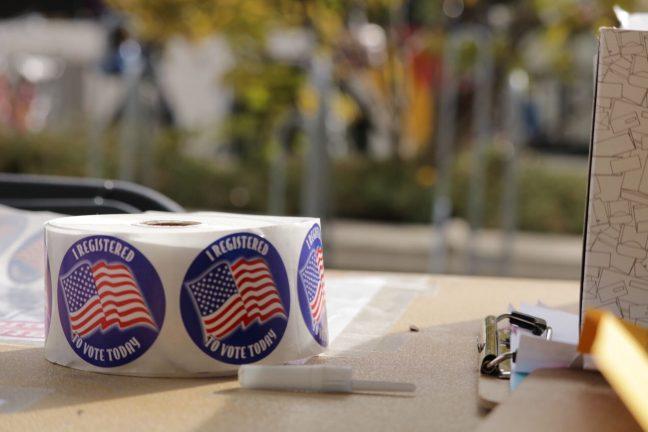Republican lawmakers made a new proposal Feb. 7 — one which would create new conditions for felons to meet before they are able to regain the right to vote.
The proposed law would require residents of Wisconsin who committed a felony to pay off all their fines, court fees and restitution costs before they would be able to vote in any elections again.
“When citizens break the law, they forfeit some of their rights, including the right to vote. That right should be restored, but only when all debts to society are paid. Otherwise, victims’ rights are undermined,” wrote the bill’s authors.
The bill has sparked polarized opinions, with some claiming it is ensuring that those guilty of felony crimes repay their debt to society. Others claim the bill is nothing but a more intricate version of voter suppression, disenfranchising a large number of citizens who have already served their time for the crimes they committed. The bill is very similar to one passed in Florida in 2020 that was challenged but ultimately upheld by a federal appeals court.
Automatic voter registration represents step forward for Wisconsin voters
While state Reps. Shae Sortwell and Duey Stroebel claimed the bill is “a common sense bill to ensure justice is entirely served and full accountability is given to those that still owe a debt to society, notably to their victims,” it is anything but that. This bill is a thinly-veiled attempt of voter disenfranchisement that would disproportionately affect minorities and lower-class individuals.
As of 2020, the U.S. incarcerated over two million of its citizens, which is the most of any country in the world. The total number of individuals that are incarcerated in the United States has risen 500% over the past 40 years.
In a recent research project conducted by Dr. Ashley Nellis of The Sentencing Project, she found one in every 81 Black adults in the U.S. is serving time in state prison. More specifically, one in every 36 Black Wisconsinites is currently serving time in a state prison, which is the highest rate in the entire nation.
The study also found that Latinx Americans are incarcerated at 1.3 times the rate of white Americans, while Black Americans are incarcerated at 5 times the rate of white Americans. A study carried out by the University of Georgia found that while 8% of the total United States population has a felony record, 33% of the Black male population has a felony record.
While there are disparities in the racial build-up of the prison system, there are also disparities in the economic build-up as well. Individuals above the age of 18 who are living in poverty are three times more likely to be arrested than individuals who are above the poverty line. In addition, individuals who are earning less than 150% of the federal poverty level are about 15 times more likely to be arrested and charged with a felony.
Ian’s vs. Eat The Best: Which is the ultimate late-night pizza location in Madison
By attempting to pass these new voting restrictions, the Republicans advocating for this bill are fighting for the disenfranchisement of hundreds of thousands, if not millions, of voters. The path for felons in Wisconsin to regain the right to vote is a long and difficult one, in which they need to complete prison sentences, parole, extended supervision or probation in order to regain their right to vote. The new bill endorsed by the GOP would ensure that many felons would be unable to vote for years, if ever again, after they finish serving their time.
This bill is an attempt at voter disenfranchisement in order to boost the GOP’s chances in elections. A study conducted by the PEW Research Center found that in 2019 83% of Black Americans surveyed were Democrats or leaned Democratic, while only 10% were Republicans or leaned Republican.
Similarly, 63% of Hispanic Americans were Democrats or leaned Democratic, while 29% were Republicans or leaned Republican. As previously stated, Latinx and Black Americans are more likely to be convicted of felonies than their white counterparts, while white people are statistically far more likely than minorities to support the Republican Party. Fifty-three percent of white Americans were Republicans or leaned Republican, opposed to 42% that were Democrats or leaned Democratic.
Another study conducted by the PEW Research Center found that 27% of individuals who make under $30,000 annually vote for Republican candidates, opposed to 50% who vote for Democratic candidates. Statistically, people of color and individuals of lower socioeconomic standing are more likely to vote for Democrats, and they are statistically more likely to be convicted of a felony.
Republican lawmakers advocating for this bill are not attempting to ensure that felons are fully reformed — they are trying to prevent them from voting in order to gain more control in local and state governments and to disenfranchise groups of people that are statistically more likely to vote blue.
Point-Counterpoint: Should government spending be cut to handle debt ceiling crisis?
On average in the U.S., incarcerated individuals are released with a total debt of $13,607 in court fees and fines. That amount can easily take years to pay back, and can effectively disenfranchise hundreds of thousands of individuals as they leave the prison system. In the U.S., we pride ourselves on being a democracy. To actively attempt to disenfranchise individuals who have served their time is not right and blatantly un-American.
Though Republicans currently control the Assembly and the Senate, it is likely they will come up against staunch opposition both in Congress and in the executive branch, as Gov. Evers has a history of vetoing GOP-supported bills that involve voting rights and limitations. Hopefully our congressmen will see through the facade and recognize this bill for what it really is — a blatant attempt at voter suppression.
Josh Standal ([email protected]) is a junior studying history.














